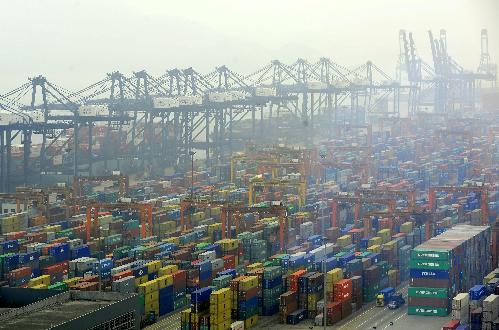|
 |
|
RAPID SUCCESS: Yantian Port of Shenzhen (XINHUA) |
Production booster
According to Zhong Jian, Director of China Center for SEZ Research of Shenzhen University, in the early 1980s, China was in urgent need of foreign investments, advanced technologies and management expertise. Establishing SEZs was a way to attract those resources through incentive policies. On July 1 this year, the whole city of Shenzhen was made an SEZ, and the expansion of Xiamen SEZ has also been approved by the Central Government.
"SEZs have greatly promoted China's economic development, since they can radiate from [strategic] points to cover the whole area," Zhong told ChinAfrica.
These incentive policies boost production in the host cities. Take Shenzhen for example. Its GDP increased from 196 million yuan ($28.86 million) in 1979 to 820.12 billion yuan ($120.78 billion) in 2009, ranking the city fourth in the Chinese mainland. During that period, its gross export increased from $9 million to $161.68 billion, with an average annual growth of 27.93 percent, ranking No.1 for 17 successive years. Meanwhile, Shenzhen SEZ also spawned dozens of world famous Chinese brands such as Huawei, ZTE, BYD and Tencent.
SEZ experience shared
"It is clear that China's SEZs have been remarkably successful," said Simon Freemantle, a South African economist with Standard Bank, in an email to ChinAfrica. He noted that the SEZs formed a vital component of the government's ambitions to integrate into the global economy through attracting foreign direct investment (FDI) and leveraging China's significant labor cost advantage.
According to Freemantle the success behind these zones has had a great deal to do with the coherency of Chinese economic policy and the ability of the government to offer attractive and structured incentives for foreign corporations eager to establish operations in China. Moreover, preference has been given to labor-intensive, export-oriented industries, which has alleviated China's socio-economic concerns and allowed the country to become one of the world's largest exporters.
"Actually, SEZ is a form that can be used to boost economic development in all the world's countries and regions," said Zhong, noting that China's experience in developing SEZs over the past 30 years can be used to assist other countries and regions, especially African countries.
Now, many African countries such as Liberia and Egypt have established their own SEZs of different kinds, mainly export processing areas. According to Zhong, SEZs in African countries are currently in the preliminary stage and more efforts are still needed to improve their management approaches and incentive policies. "But no doubt, these SEZs will play a very important role in the economic development in Africa," said Zhong.
In May 2009, a workshop on China's SEZ development experience, sponsored by the World Bank, was held in Shenzhen University with participants including economic officials from 11 African countries.
In June this year, 26 vice ministers from Mozambique came to Beijing to attend an 11-day training course in SEZ operation.
|